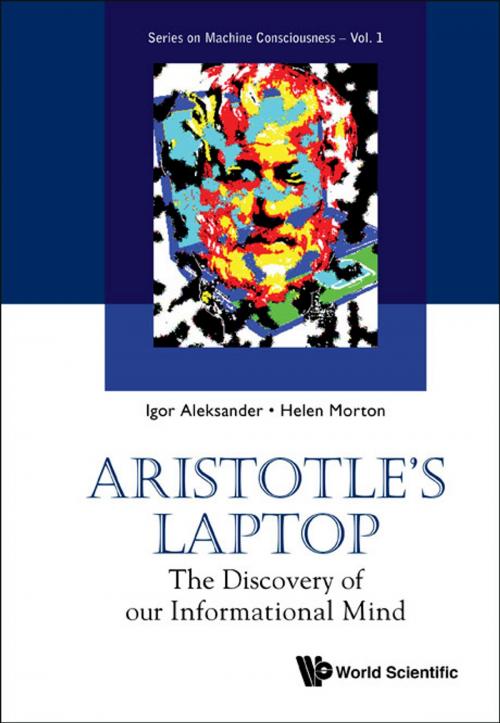Aristotle's Laptop
The Discovery of our Informational Mind
Nonfiction, Computers, Advanced Computing, Theory, Artificial Intelligence, General Computing| Author: | Igor Aleksander, Helen Morton | ISBN: | 9789814425629 |
| Publisher: | World Scientific Publishing Company | Publication: | September 13, 2012 |
| Imprint: | WSPC | Language: | English |
| Author: | Igor Aleksander, Helen Morton |
| ISBN: | 9789814425629 |
| Publisher: | World Scientific Publishing Company |
| Publication: | September 13, 2012 |
| Imprint: | WSPC |
| Language: | English |
Aristotle's convincing philosophy is likely to have shaped (even indirectly) many of our current beliefs, prejudices and attitudes to life. This includes the way in which our mind (that is, our capacity to have private thoughts) appears to elude a scientific description. This book is about a scientific ingredient that was not available to Aristotle: the science of information. Would the course of the philosophy of the mind have been different had Aristotle pronounced that the matter of mind was information? This “mind is information” assertion is often heard in contemporary debates, and this book explores the verities and falsehoods of this proposition.
Contents:
- Overview: From Aristotle to the Bits of an Informational Mind
- Shannon: The Reluctant Hero of the Information Age
- Billions of Brain Cells: Guesses and Models
- Imagination in the Circles of a Network
- Phenomenal Information: The World and Neural States
- Information Integration: The Key to Consciousness?
- The Joy of Seeing: Gathering Visual Information
- The Informational Mind: Oxymoron or New Science?
- The Unconscious Mind: Freud's Influential Vision
- Aristotle's Living Soul
Readership: Philosophers, scientists and those interested in consciousness and machine consciousness; readers of multidisciplinary books on machine analyses of consciousness.
Aristotle's convincing philosophy is likely to have shaped (even indirectly) many of our current beliefs, prejudices and attitudes to life. This includes the way in which our mind (that is, our capacity to have private thoughts) appears to elude a scientific description. This book is about a scientific ingredient that was not available to Aristotle: the science of information. Would the course of the philosophy of the mind have been different had Aristotle pronounced that the matter of mind was information? This “mind is information” assertion is often heard in contemporary debates, and this book explores the verities and falsehoods of this proposition.
Contents:
- Overview: From Aristotle to the Bits of an Informational Mind
- Shannon: The Reluctant Hero of the Information Age
- Billions of Brain Cells: Guesses and Models
- Imagination in the Circles of a Network
- Phenomenal Information: The World and Neural States
- Information Integration: The Key to Consciousness?
- The Joy of Seeing: Gathering Visual Information
- The Informational Mind: Oxymoron or New Science?
- The Unconscious Mind: Freud's Influential Vision
- Aristotle's Living Soul
Readership: Philosophers, scientists and those interested in consciousness and machine consciousness; readers of multidisciplinary books on machine analyses of consciousness.















